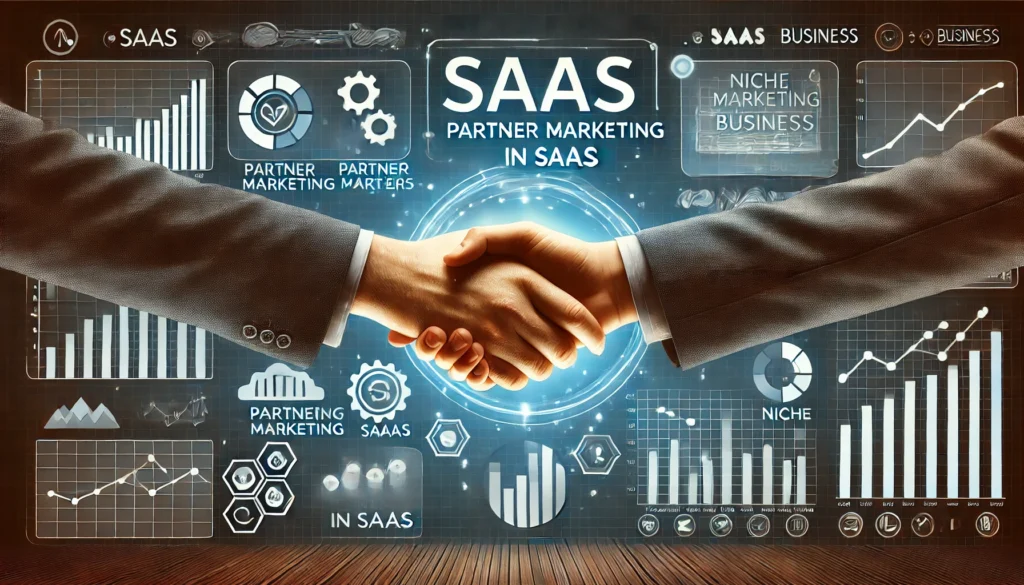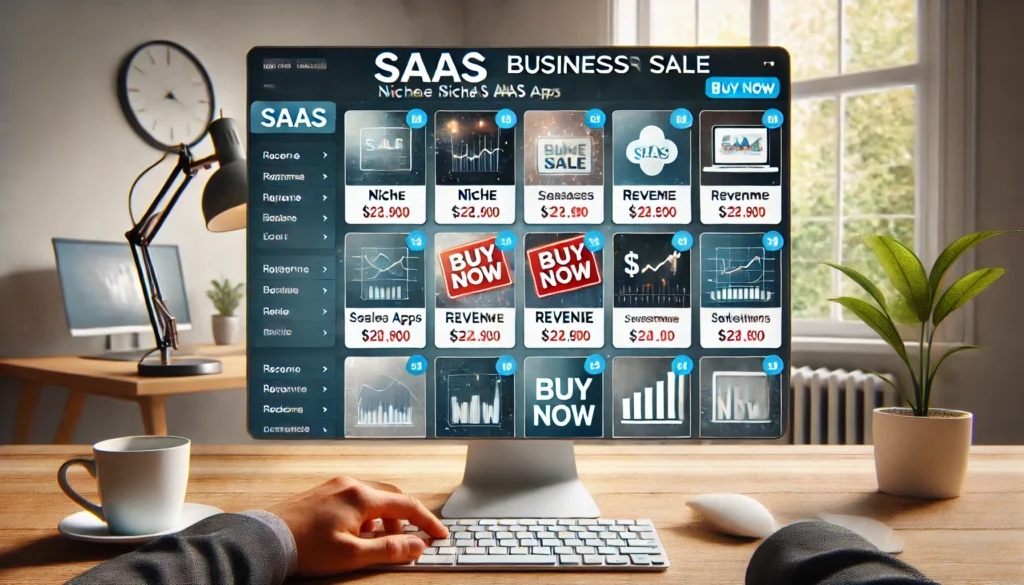In the world of SaaS, the “build it and they will come” mentality doesn’t cut it anymore. Entrepreneurs today are more strategic, especially in micro-niches where tailored solutions dominate. One of the most overlooked but profitable approaches? White label SaaS businesses marketed and scaled through partner networks.
This article breaks down how to create a white label SaaS product, position it for acquisition, and leverage partner-based marketing to grow fast and exit smart.
What Is a White Label SaaS?
A white label SaaS product is software built by one company and rebranded and resold by another. The core software remains the same, but it can be customized in terms of branding, user interface, and sometimes even feature sets to serve specific verticals.
This model is perfect for:
- Agencies wanting to offer tools to clients under their own brand.
- Entrepreneurs with an audience but no dev skills.
- SaaS founders looking to scale without scaling support.
Unlike traditional SaaS, white label solutions shift part of the marketing and distribution burden to the resellers, making it a smart play in niche markets.
The Micro-Niche Advantage
Micro-niches are goldmines for white label SaaS. Instead of building the next general-purpose CRM, think of CRMs built specifically for real estate photographers, pet groomers, or escape rooms.
Here’s why micro-niches work:
- Specific problems, specific solutions: Easier product-market fit.
- Less competition: You’re not going head-to-head with giants.
- Faster feedback loops: Niche users are vocal and accessible.
If you’re building a white label SaaS, choosing a micro-niche makes customization easier and increases appeal for resellers who want to dominate a specific vertical.
Building a White Label SaaS Product
You don’t need to reinvent the wheel. Here’s a streamlined path:
- Identify a repeatable problem in a niche market.
- Validate the solution with mockups or MVPs.
- Build modularly: Make branding, themes, and configurations easy to swap out.
- Design your admin dashboard for both the parent platform and resellers.
- Offer clear documentation and onboarding tools to reduce friction for partners.
You can either build from scratch or acquire a SaaS business for sale that’s underperforming but technically sound. Buying and repurposing an existing tool for white label resale is often faster and cheaper than starting from zero.

The SaaS Business for Sale Angle
There’s a growing market for small-scale SaaS businesses with monthly revenues between $500 – $5,000. Platforms like MicroAcquire, Flippa, and TinyAcquisitions list dozens of potential white label-ready tools.
Here’s what to look for:
- Clean codebase and solid infrastructure.
- Low churn and decent user retention.
- Poor branding or marketing (opportunity to reposition).
- Clear use case with underserved verticals.
Once acquired, rework the front-end, add customization options, and prep it for partner onboarding. You now have a white label SaaS with market potential and minimal dev time.
Market Through Partners SaaS: A Growth Engine▐
Marketing through partners flips the traditional SaaS growth model. Instead of burning cash on ads, you empower others to sell your product under their brand.
Partner marketing includes:
- Agencies
- Influencers with a business audience
- Niche consultants and coaches
- Industry vendors with existing client bases
Why it works:
- Your partners already have trust.
- CAC (Customer Acquisition Cost) shifts to commission or licensing fees.
- You gain reach without needing massive marketing infrastructure.
To make this model work, create partner tiers with clear incentives:
- White label partners: Full rebranding, higher monthly cost.
- Referral partners: Commission-based, no branding control.
- Reseller partners: Sell under your brand but manage client support.
Key Elements of a Partner-Focused SaaS
- Multi-Tenant Architecture: Each partner should be able to manage their customers separately.
- Easy Custom Branding: Upload logos, change color schemes, custom domain support.
- White Label Support Tools: Help desk, tutorials, and onboarding under the partner’s brand.
- Analytics Dashboard: Let partners see usage, retention, and billing metrics.
- Billing Flexibility: Let partners handle billing or set rates within your pricing rules.
These technical and operational layers make the partner’s job easier, which directly boosts adoption.
Exit Strategy: Positioning for Acquisition
If you’re planning to eventually exit, the white label model is attractive to buyers because it:
- Shows scalability without scaling internal teams.
- Demonstrates product-market fit across niches.
- Has recurring revenue and predictable MRR.
- Offers defensibility through partner relationships.
When listing your SaaS business for sale, highlight:
- Active partner accounts and retention.
- White label flexibility and support systems.
- Revenue split (direct vs. partner-driven).
- Technical stack and ease of future updates.
SaaS buyers are looking for clean operations and growth potential. A white label SaaS with solid partner marketing checks both boxes.
Real-World Example: Niche Booking Software
Imagine a SaaS product originally built for general appointment booking. You acquire it, rebrand it, and position it for:
- Dog groomers
- Mobile car washers
- Niche therapists
Each partner gets a white labeled version: “FluffyTime Scheduler” for groomers, “ShineNow” for mobile detailers, and so on.
They handle sales and support. You provide the engine and collect monthly fees. With 20 active partners, each managing 50 clients, you have a highly scalable revenue engine with minimal overhead.

Frequently Asked Questions (FAQ)
1. What is a white label SaaS product?
A white label SaaS product is a software application developed by one company but rebranded and sold by others as their own. It allows resellers to offer software solutions without needing to build or maintain the underlying codebase.
2. Why would someone buy a SaaS business for white labeling?
Buying an existing SaaS business saves development time and provides a foundation to quickly enter niche markets. With minimal changes, a new owner can rebrand it for different verticals and start generating revenue faster.
3. Is white label SaaS only for agencies?
Not at all. While agencies are common resellers, entrepreneurs, niche influencers, consultants, and even local service providers use white label SaaS to create recurring revenue streams under their own brand.
4. What makes micro-niches profitable for white label SaaS?
Micro-niches often have specific, unmet needs and less competition. Software tailored to these audiences can achieve strong product-market fit and higher retention, especially when resold by trusted local or niche-specific brands.
5. How do I market a SaaS product through partners?
You provide your software to partners—agencies, influencers, or resellers—who then sell it under their brand. You supply the infrastructure, while they handle marketing, onboarding, and often customer support. It’s a win-win growth model with reduced acquisition costs.
6. What should I look for when buying a SaaS business for white labeling?
Focus on clean code, low churn, active users, and niche use cases. Avoid products with overly complex architectures or bad user experiences. Ideally, the tool should be easy to brand, configure, and resell.
7. How do I support partners using my white label SaaS?
Create detailed documentation, white-labeled help centers, training videos, and offer email or live support during onboarding. The easier it is for partners to use and sell your product, the faster you scale.
8. Can I run a white label SaaS business solo?
Yes, especially if you use automation for onboarding, billing, and customer support. Many solo founders run lean, profitable white label SaaS operations by focusing on a single niche and empowering a handful of quality partners.
9. Is this model scalable?
Extremely. The more partners you bring on, the more end users you reach—without directly managing them. A well-built white label system allows you to scale revenue without scaling your internal team proportionally.
10. How do I price a white label SaaS offering?
Pricing can be flat-rate (monthly license fee), per-user, or revenue-share. Offer tiers based on branding flexibility, features, and support level. Keep it simple and aligned with your partners’ business models.
Final Thoughts
The white label SaaS model is a powerful, underutilized strategy—especially when combined with a market through partners SaaS growth strategy. It’s lean, it scales, and it works beautifully in micro-niches where personalization and trust matter most.
Whether you’re building from scratch or hunting for a SaaS business for sale to white label and grow, the key is strategic positioning. Know your niche, empower your partners, and set yourself up for a profitable exit.
No need to be the next Salesforce. Be the best tool for the best-defined market—then let others sell it for you.

Leave a Reply